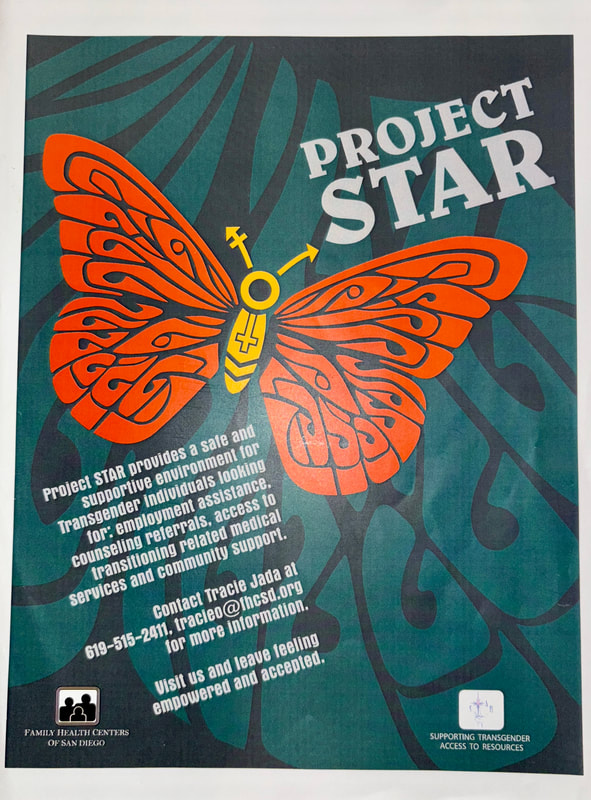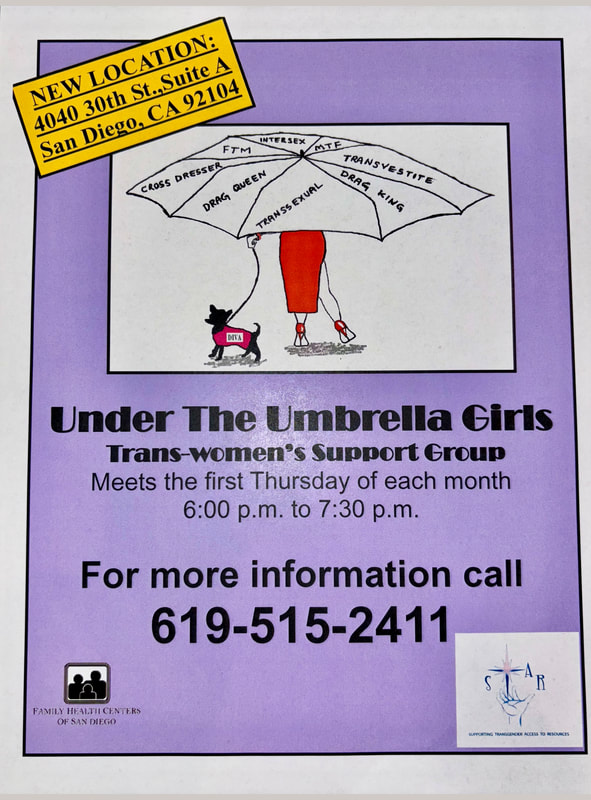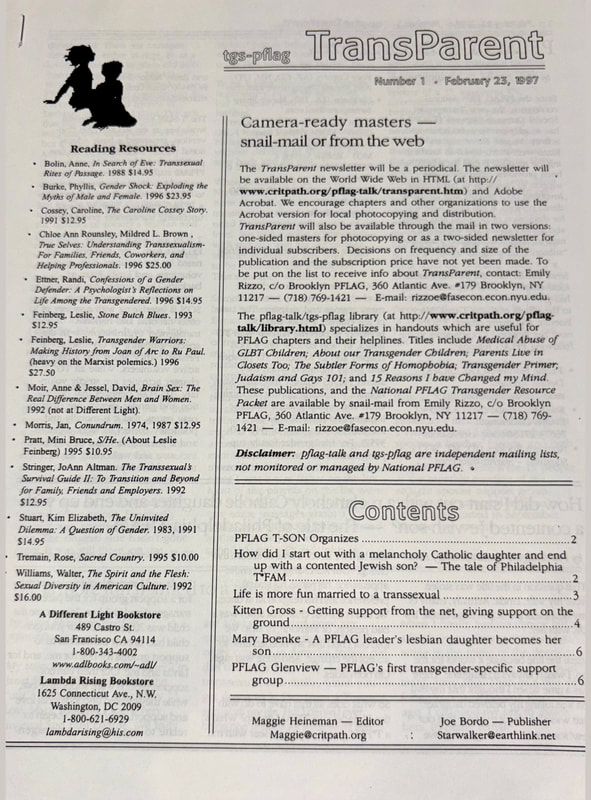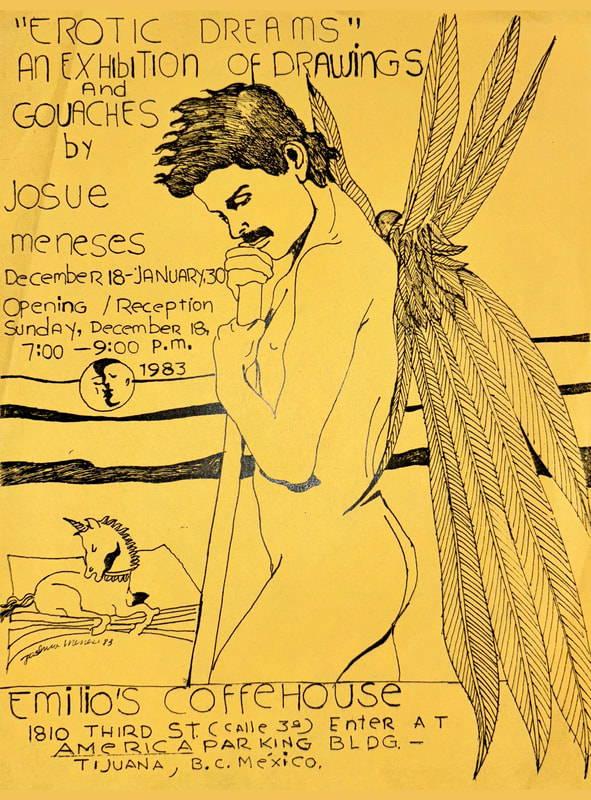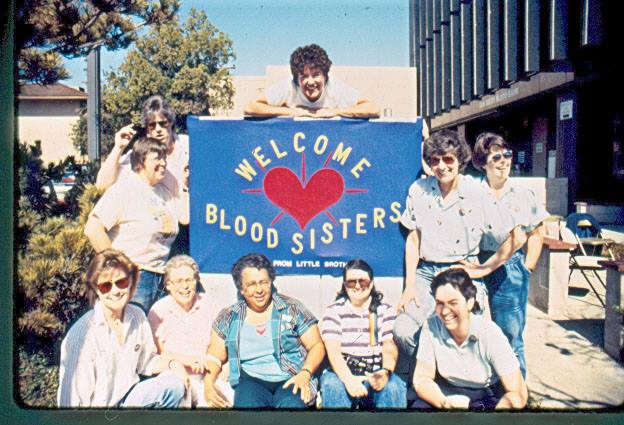Transgender and BIPOC Foundations of LGBTQ+ History in San Diego and Northern Baja California
In collaboration with San Diego State University's Digital Collections Department and Pride Center, we will be identifying materials within multiple collections currently under our care that reflect the history of Transgender activists, grassroots groups, and BIPOC-led organizations with a geographic scope including San Diego, Imperial County, and Northern Baja California. The materials range from organizational records, correspondence, meeting minutes, flyers, photographs, and ephemera, covering the period from the late 1970s through the early 2000s. By engaging student workers through SDSU's Pride Center, we will digitize and create metadata to ensure these materials are not only safeguarded but made freely accessible through our digital preservation platform.
|
Vertez Burks is a long-time activist and a founding member of Lesbians and Gays of African Descent United (LAGADU), alongside Marti Corrine Mackey, John Guinn, and others. LAGADU served as both a support network and an advocacy group, with men’s and women’s meetings held separately each month to provide space for personal support, while collective meetings focused on organizational matters, fundraising, and community events. Vertez describes her time with LAGADU as transformative, stating that she “blossomed” through her involvement. This digitization project will preserve key documents from the Vertez Burks Collection, highlighting her activism and contributions to the San Diego LGBTQ+ community. Featured Image: Vertez Burks, date unknown, The Center/Dennis Howard collection, P240.138m.r.t
|
The Jess Jessop Letters
|
Jess Jessop was a pioneering activist who co-founded Lambda Archives and was an early member of the Gay Liberation Front while attending San Diego State University. After serving as a medic in the Vietnam War, he became an outspoken critic of the war’s atrocities and dedicated his life to LGBTQ+ rights. A prolific writer, Jess frequently corresponded with elected officials, friends, and fellow activists, leaving behind a wealth of deeply personal and politically charged letters. This project will digitize some of his most compelling letters, offering a rare glimpse into his decades-long commitment to activism. Featured Image: Jess Jessop, 1989, Jess Jessop collection, L1990.01
|
|
Founded in 1983 by the Women’s Caucus of the San Diego Democratic Club, the Blood Sisters emerged in response to the AIDS crisis and the federal ban on blood donations from gay men. Their first blood drive, held on July 16, 1983, at the San Diego Blood Bank in Hillcrest, drew nearly 200 women, resulting in approximately 130 successful donations. Beyond providing life-saving transfusions, the Blood Sisters sent a powerful message of solidarity to HIV/AIDS patients, many of whom were abandoned by their families and the medical establishment. As one of the most frequently researched topics in our collection, digitizing these materials is vital to ensuring their story reaches a global audience. In 2020, Lambda Archives supported British playwright Georgia Kelly in developing her one-woman play Blood by providing historical context on the Blood Sisters and connecting her with the group's original thought leader, Barbara Vick. (The pitch for the play and interview between Georgia and Barbara Vick starts at 13:30 in the video) Featured Image: The Blood Sisters, 1983, L-R: Barbara Vick, Peggy Skill, Tracy Stone, Peggy Heather, Cynthia Lawrence-Wallace, Faith Burkhardt, Bridget Wilson, Ann Garwood, Jeri Dilno. Woman at top-center unknown.
|

